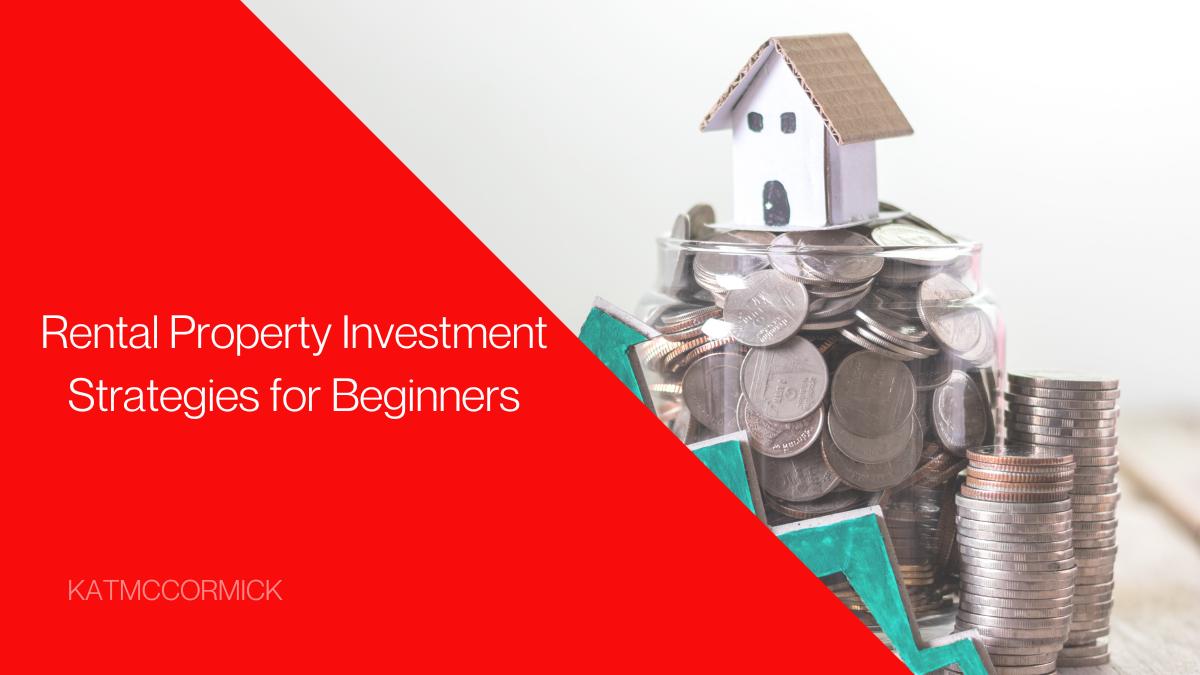Rental property investments can be a great strategy to amass money through passive income generation. Real estate can seem intimidating if you’re just starting out, but don’t panic! If you’re interested in investing in rental property, this article will provide you the tools you need to get started. If you want to earn extra money, put away money for retirement, or gain financial independence, investing in real estate is a good place to start.
1. Rental Property Investment Basics
It’s important to get a firm handle on the foundations of rental property investment before going into the techniques. Learn about the different property kinds, cash flow analysis, and your obligations as a landlord.
2. Setting Investment Goals
The first step in successful investing is setting clear objectives. Do you prioritize safety of principal or growth in value? The properties you choose and your overall investing plan will be directed by your goals.
3. Understanding Market Trends and Location Analysis
First, you need to do some market research and site analysis. Try to locate a neighborhood that has low crime rates, a developing job market, and high quality schools and other facilities. Investment property location analysis, real estate market trends, LSI Keywords.
4. Financial Readiness
Determine your investing budget after you’ve taken stock of your financial situation. Think about the money you’ll need for a down payment, closing charges, management fees, and routine upkeep.
5. Pre-Approval for Mortgage
Understanding your borrowing capacity and streamlining the property purchase process are both aided by getting pre-approved for a mortgage.
6. Choosing the Right Property
Choosing the perfect place to lease is essential. Think about things like the property’s current state, its potential for growth, its suitability as a rental, and the atmosphere of the surrounding area.
7. Rental Property Financing Options
Find the greatest fit for your investment by comparing conventional loans, FHA loans, and private lenders.
8. Cash Flow Management
Make sure your rental property brings in enough money to pay for itself and give you a little extra. Cash-Flow-Optimization and Rental-Property Expenses are two closely related LSI terms.
9. Long-Term vs. Short-Term Rentals
You should weigh the benefits of both long-term and short-term rentals to determine which option is best for you.
10. Property Management
Pick between managing the property yourself or working with a professional company. Learn the ins and outs of the law and your obligations as a landlord.
11. Tenant Screening Process
locate out how to screen tenants thoroughly to locate responsible people who will pay their rent on time and take care of your property.
12. Lease Agreements and Contracts
Construct in-depth lease agreements that define tenant responsibilities and safeguard your rights.
13. Property Maintenance and Upkeep
Keeping the property in good shape is essential if you want to keep tenants interested. Create a plan for regular upkeep and a fund for emergency fixes.
14. Handling Vacancies
Examine options including advertising, pricing changes, and tenant retention programs to cut down on vacancies.
15. Rental Property Tax Considerations
It’s important to consult a tax expert and learn the ins and outs of the tax code when investing in rental properties.
16. Building a Real Estate Network
It’s important for investors, real estate brokers, and property managers to build relationships with one another, as doing so can lead to useful information and investment opportunities.
17. Evaluating Investment Performance
Use indicators like return on investment (ROI) and capitalization rate (cap rate) to evaluate the success of your investments on a regular basis.
18. Scaling Your Real Estate Portfolio
As your knowledge and confidence grow, you may want to think about diversifying your holdings by purchasing more properties or entering new markets.
19. Navigating Real Estate Challenges
Be ready for difficulties such as economic downturns, tenant disputes, and changes in the real estate market.
20. Continuing Education in Real Estate
To further your real estate career, it is important to keep up with market trends, learn from seminars, and read books written by professionals in the field.
Frequently Asked Questions
How much money do I need to start investing in rental properties?
The asking price of the property, the down payment, closing expenses, and any necessary reserves all play a role in determining the total amount required. Get off on a good financial footing and look into financing possibilities if you need to.
What is a good location for rental property investment?
A excellent location has positive economic growth, low crime rates, high-quality educational institutions, and enticing community facilities.
How do I find reliable tenants for my rental property?
Set up a system to thoroughly screen potential tenants by performing things like checking their credit and background.
Should I invest in long-term or short-term rentals?
Your decision should be guided by your investment objectives, applicable laws, and market conditions. Stability is offered by long-term leases, whereas the potential for higher rental income in short-term leases comes with the cost of increasing tenant turnover.
How can I maximize my rental property’s cash flow?
Maximize revenue by charging market rate rents, minimizing vacancies, and cutting costs when possible.
Is it better to manage the property myself or hire a property management company?
Though you can save money by managing the property on your own, hiring a reliable property management company will free up your time and take care of the property’s day-to-day operations.
Final Words
You’ve already accomplished a huge step toward being a seasoned landlord. Keep in mind that success in real estate investing needs time, effort, and knowledge. You can successfully navigate the ever-changing world of rental property ownership and establish a lucrative portfolio over time with the information you’ve received from this article and a strong commitment to your goals.
- The Ultimate Guide to Lease Termination: Avoid Costly Mistakes
- Property Management: Expert Tips for 24/7 Maintenance Success
- Why Every Property Manager Needs an Online Tenant Portal Now
- Your Essential Guide to Fair Housing Laws
- Boost Your Property’s Appeal: How to Accommodate Tenants with Disabilities

